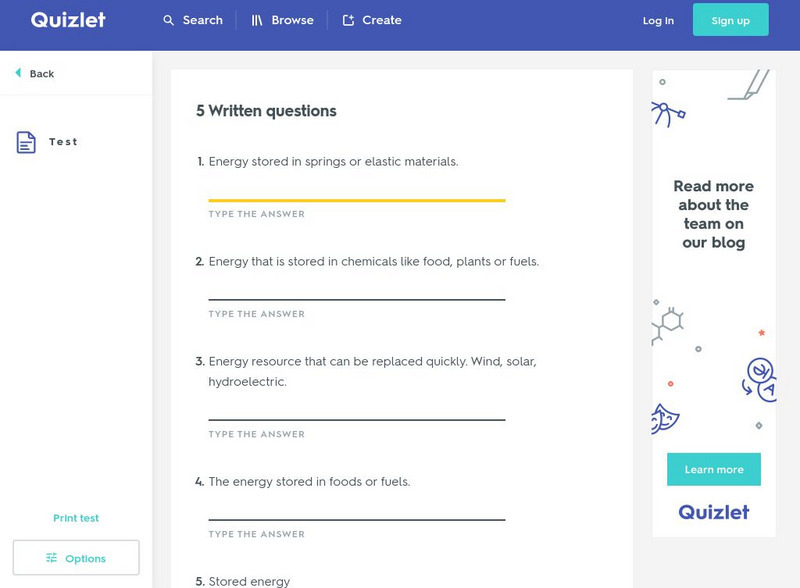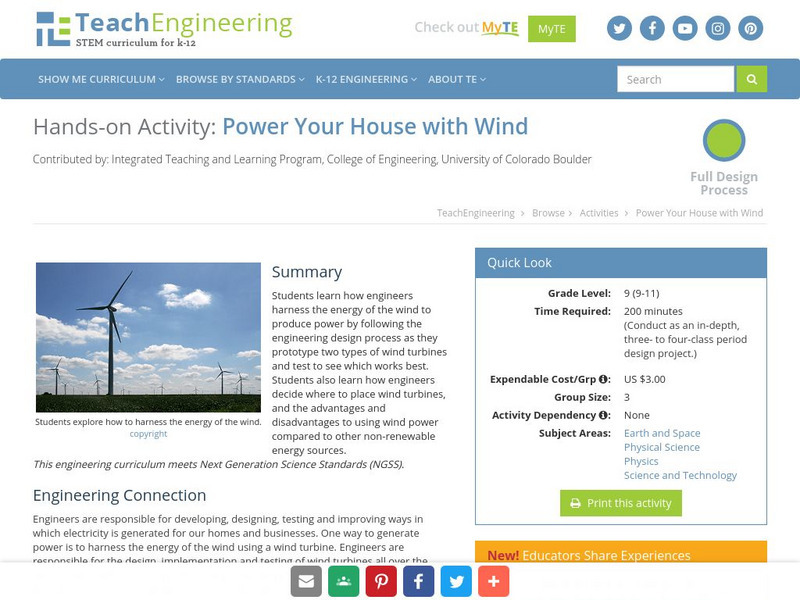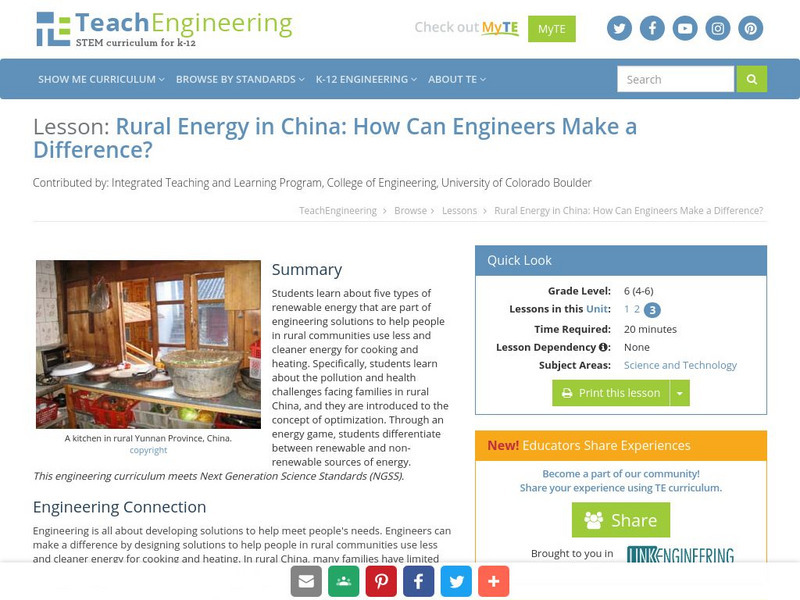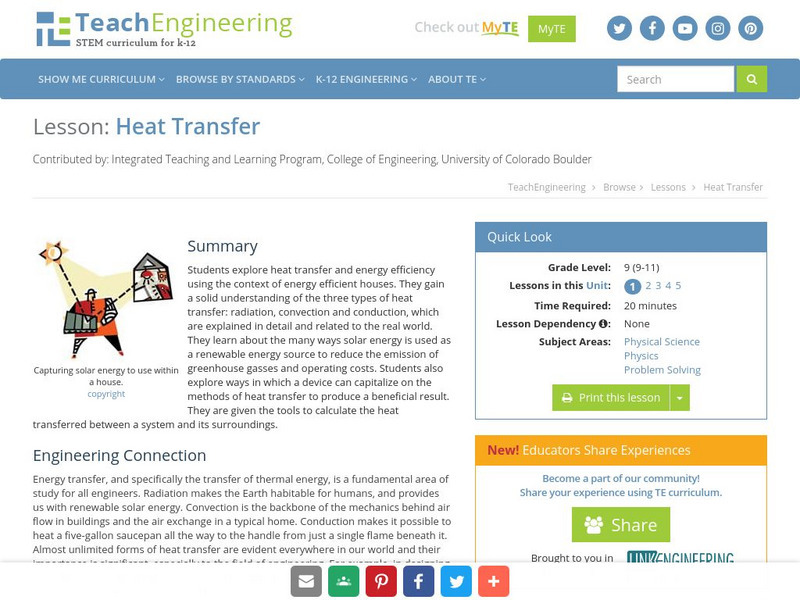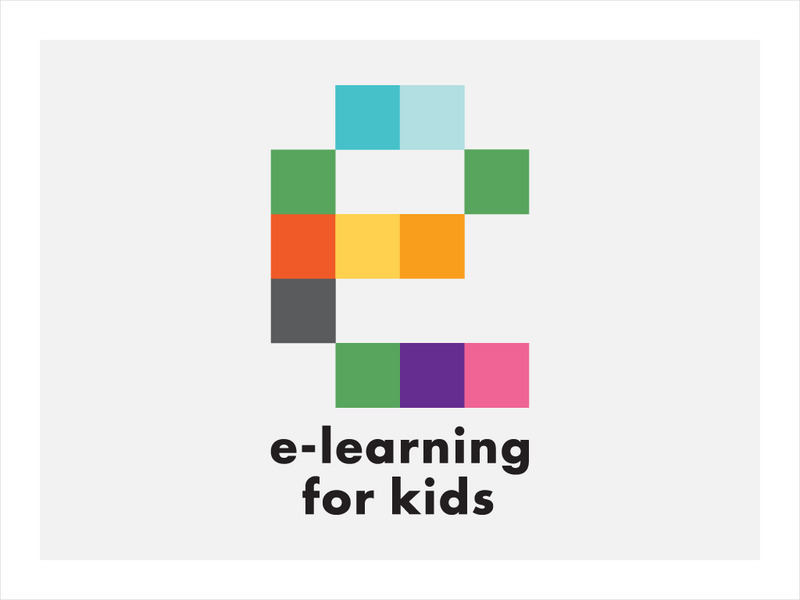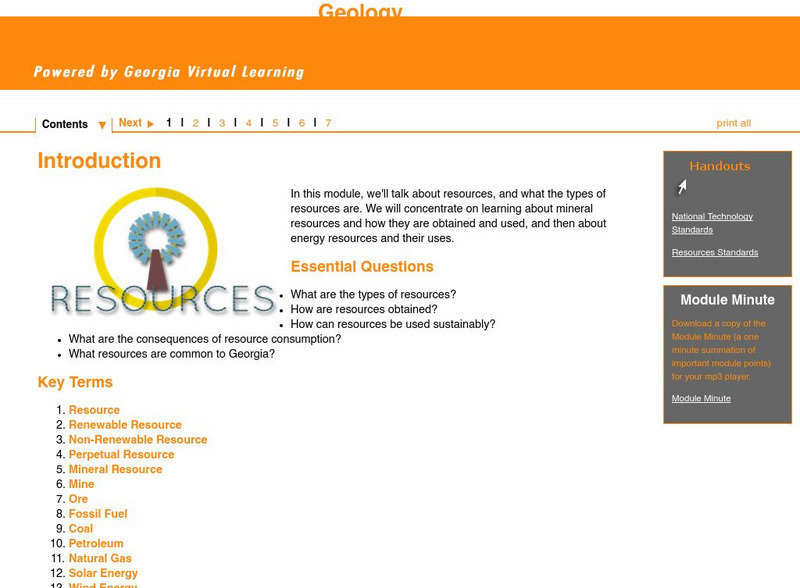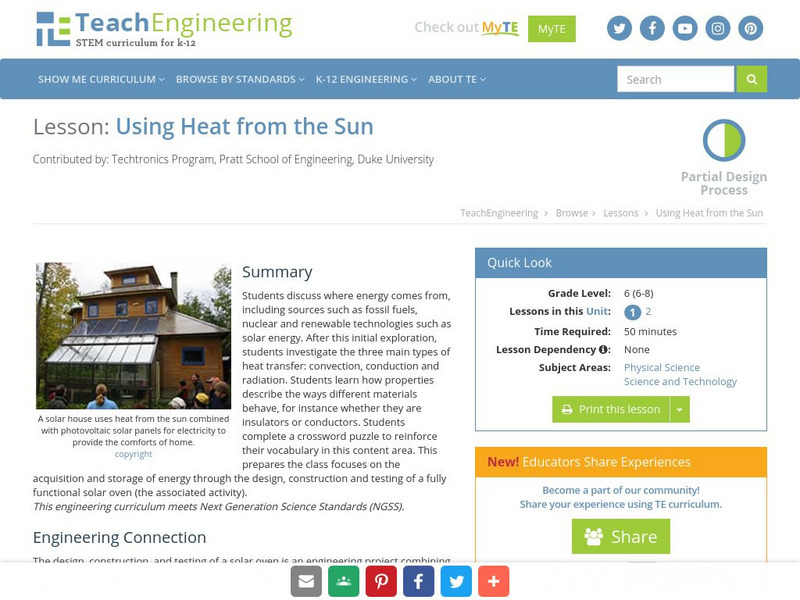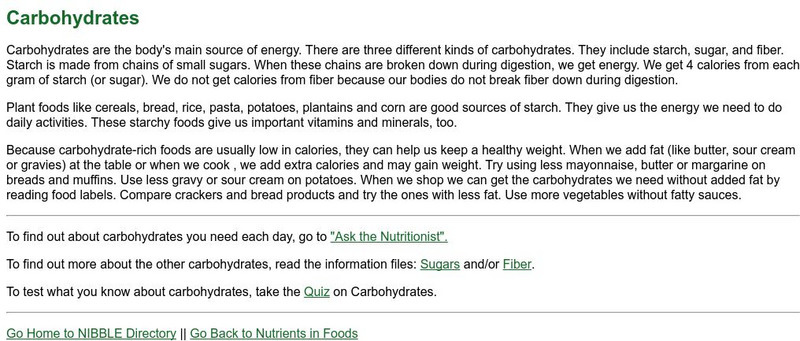Hi, what do you want to do?
Quizlet
Quizlet: 6th Grade Science: Energy Vocabulary: Test
This interactive assessment features 6 matching, 6 multiple-choice, and 5 true/false question over 17 terms related to energy and their definitions. These include the following: Kinetic, Sound, Potential, Elastic potential, Chemical,...
Quizlet
Quizlet: 6th Grade Science: Energy Vocabulary: Match
In this interactive game, students match 17 terms related to energy with their definitions. These include the following: Kinetic, Sound, Potential, Elastic potential, Chemical, Gravitational Potential, Electrical, Light, Energy, Energy...
Science Buddies
Science Buddies: Biodiesels: Converting Oil Into Clean Fuel
Experiment making biodiesel from different types of oil and determine which oils give the best result. This science fair project from Science Buddies, although in an abbreviated format compared to other Science Buddies experiments, gives...
TeachEngineering
Teach Engineering: Environmental Challenges in China
Students learn about the wonderful and fascinating country of China, and its environmental challenges that require engineering solutions, many in the form of increased energy efficiency, the incorporation of renewable energy, and new...
TeachEngineering
Teach Engineering: Power Your House With Wind
Students learn how engineers harness the energy of the wind to produce power by following the engineering design process as they prototype two types of wind turbines and test to see which works best. Students also learn how engineers...
TeachEngineering
Teach Engineering: Rural Energy in China: How Can Engineers Make a Difference?
Students learn about five types of renewable energy that are part of engineering solutions to help people in rural communities use less and cleaner energy for cooking and heating. Specifically, students learn about the pollution and...
TeachEngineering
Teach Engineering: Heat Transfer
Students explore heat transfer and energy efficiency using the context of energy efficient houses. They gain a solid understanding of the three types of heat transfer: radiation, convection and conduction, which are explained in detail...
EL Education
El Education: Renewing Our Future
After completing research and field-work, students create a calendar with photographs, illustrations, and information about four different types of renewable energy: solar, wind, hydropower, and biomass.
E-learning for Kids
E Learning for Kids: Scotland: What Is the Difference Between Renewable and Nonrenewable Resources?
Looks at types of natural resources that can be used for energy, and the difference between renewable and nonrenewable energy sources.
TeachEngineering
Teach Engineering: Win That Bid! Selling Your Power Solution
A large part of engineering involves presenting products, concepts, and proposals to others in order to gain approval, funding, contracts, etc. The purpose of this activity is to fine-tune students' presentation skills while allowing...
Georgia Department of Education
Ga Virtual Learning: Geology Resources
In this interactive tutorial you will learn about geological resources. Learn what the types of resources are and concentrate on learning about mineral resources and how they are obtained and used, and then about energy resources and...
TeachEngineering
Teach Engineering: Using Heat From the Sun
In this lesson, students will first discuss where energy comes from, including sources such as fossil fuels, nuclear, and such renewable technologies as solar. After this initial exploration, students will investigate the three main...
University of Massachusetts
Nutrients in Foods: Carbohydrates
This website offers a brief discussion of the function of carbohydrates. It mentions types and definitions of the three types of carbohydrates: starch, sugar and fiber. Links to related information is provided
TeachEngineering
Teach Engineering: Stop Heat From Escaping
One way to conserve energy in a building is to use adequate insulation. Insulation helps keep the hot or cool air inside or outside of a building. Inefficient heating and cooling of buildings is a leading residential and industrial...
TeachEngineering
Teach Engineering: Engineering for the Earth
Young students are introduced to the complex systems of the Earth through numerous lessons on its natural resources, processes, weather, climate and landforms. Key earth science topics include rocks, soils and minerals, water and natural...





